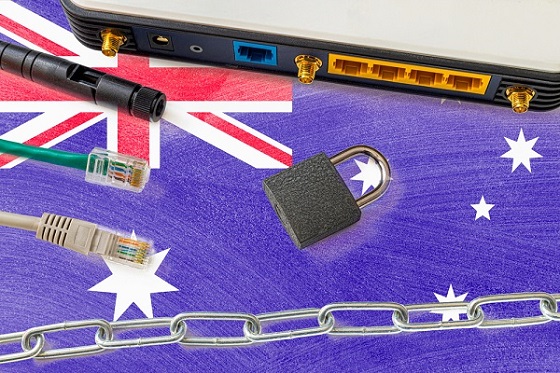By: Cory G. Litzenberger, CPA, CMA, CFP, C.Mgr – President & Founder of CGL Strategic Business & Tax Advisors
Which came first, the payment or the expense?
As of May 21, 2018, according to the website: https://turbotax.intuit.ca/tips/are-medical-expenses-deductible-5317 (image above) they recommend paying large medical expenses in advance in order to claim a tax credit in the year you paid.
This is not entirely accurate.
Payment alone will not guarantee that you can claim it as a medical expense.
In an (originally issued in French) external interpretation issued by the Canada Revenue Agency on December 6, 2016 (2015-0589041E5 F) they clarified that prepayment of medical services only works for services consumed in the 12 months ended in the tax year.
Relying on a 2001 Federal Court of Appeal case, the CRA stated,
“an expense is “incurred” […] only where there is an obligation to pay a sum of money. […] we are of the view that a fee paid is not necessarily an expense incurred. This could mean that it is to be regarded as a prepaid fee. With respect to an amount paid for medical expenses, it must, therefore, be determined whether it is an expense incurred or a prepaid amount.”
Uh oh.
They are saying that there is a difference in the tax treatment between prepayment and an expense, which is why we have to figure out what the payment is.
It seems to say that if there were no services rendered, then it isn’t an expense.
Think of the following scenario:
– Your child goes back to school in the fall.
– You find out they need braces.
– After some back and forth and budget planning you decide to go ahead.
– The orthodontist in this example gives you payment options: pay up front or set up a payment plan (usually a higher amount overall).
– You make the voluntary decision to pay upfront before installing the braces.
– You pay the fee in late November in the tax year, but the braces are not installed until January of the following year.
To this extent the CRA continues:
“…medical expenses [for a particular taxation year must] have been paid within any period of 12 months that ends in the taxation year…”
The CRA continues by stating that an individual can choose any 12-month period in the year, but the expenses must be paid in that period.
“Thus, for the purposes of computing the METC, it is necessary to determine whether the expenses paid […] were paid during the period chosen by the taxpayer.”
So yes, we paid during the period, but the CRA is using that word expenses, and we already know that they don’t call it an expense unless services are rendered
This means since no services were rendered in the tax year, we cannot claim the prepayment as an expense (or at least according to them).
The ruling gets worse.
If you are like most people, you submit your receipts on a calendar year to your accountant and don’t give it much more thought than that.
The CRA states how you could lose the deduction entirely:
“where an individual chooses the period from January 1 to December 31 [of the taxation year] the expenses that are the subject of the METC computation must have been paid during the same period.
For example, if a dental service is rendered on January 15 [of the taxation year] […] and the expenses are incurred at that time, the fees paid for that service would be medical expenses […]
If these fees were paid on December 31, [of the previous year] they would not be eligible for the METC computation for [the taxation year] as they would not have been paid during the selected period.”
Pardon?
Yes, they are saying that if you prepaid for medical services, the amount held on deposit at your orthodontist’s office would not be considered expenses – even as the services are rendered – if the payment was not in the 12-month period reported on the return.
So not only did you not get the expense in the tax year that you prepaid but because you filed your medical expenses on the calendar year, you don’t get the medical expense when the services were rendered either because there was no payment in the year.
They do provide a little hind-sight relief, however, but it requires more filings subject to their approval (which is never a quick process). Simply put, they state that in this scenario, they would let you go back to amend the earlier tax year to include the expense.
Personally speaking, this is frustrating because when you file the first year, they are saying it is not eligible, but after you file the second year, they tell you to go back and amend the first year.
Seems like semantics, as the braces won’t be installed on your child unless you are both bound to some sort of contract including requirements to pay but watch for an over-zealous tax auditor to kick out your deposit in year one if services were not yet rendered especially where the deposit is refundable.
My recommendation?
In order to please the CRA, it is my suggestion that when you make the prepayment – rather than just getting your credit card slip and a statement of account showing the deposit – you need to have some sort of written contract or agreement with the medical practitioner’s office. This agreement should state that the prepayment is for medical services to be rendered by the practitioner and is non-refundable and that you have an “obligation to pay” prior to services being rendered.
Hey… I didn’t say it was a GREAT recommendation… and most things to appease the rules in the Income Tax Act aren’t.
Related




 Business1 day ago
Business1 day ago
 Brownstone Institute1 day ago
Brownstone Institute1 day ago
 ESG21 hours ago
ESG21 hours ago
 Daily Caller20 hours ago
Daily Caller20 hours ago
 John Stossel19 hours ago
John Stossel19 hours ago
 COVID-191 day ago
COVID-191 day ago
 Business2 days ago
Business2 days ago
 MAiD1 day ago
MAiD1 day ago



















